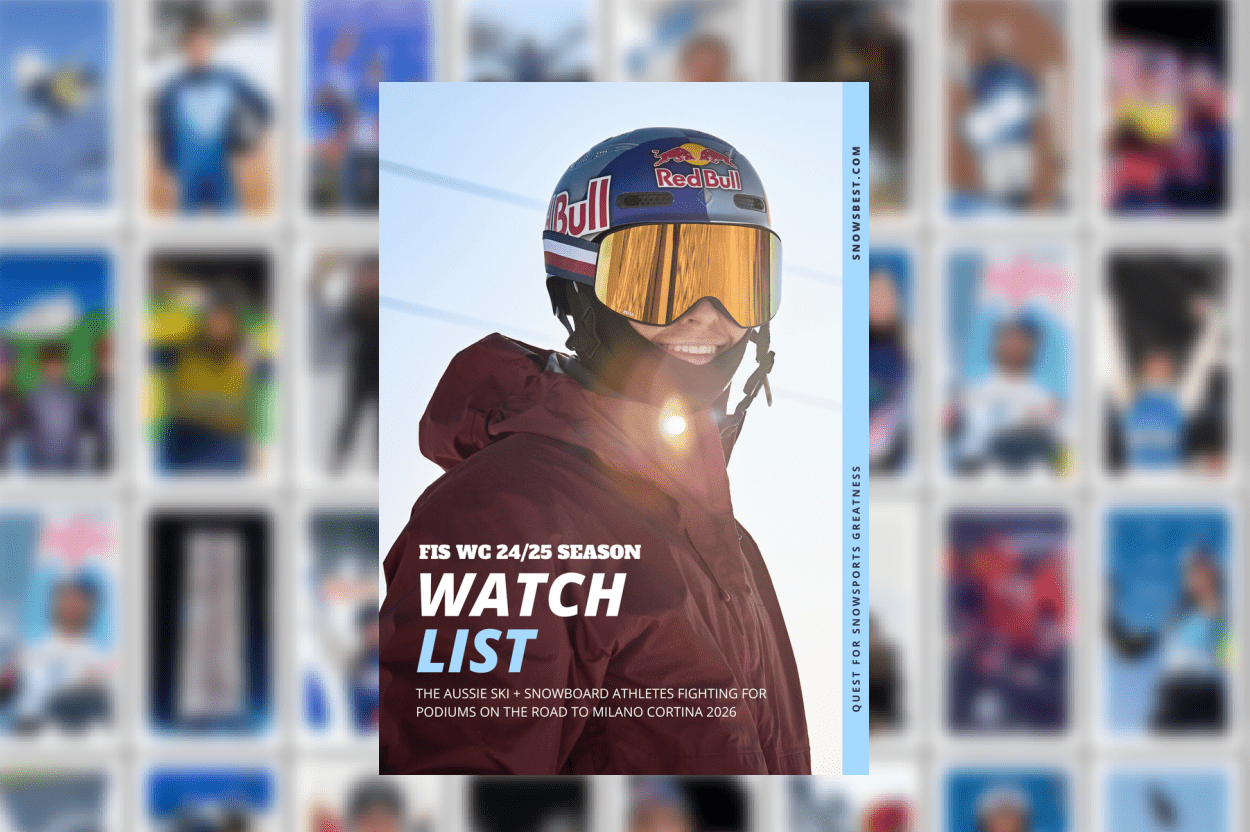Perhaps no one, other than her family and coaches, knows aerial skier Olympic gold and bronze medalist, Lydia Lassila, as well as Katie Bender. As the director of the award winning The Will To Fly documentary, Bender shadowed Lydia at home, abroad, with her family, while training and more.
The documentary was four years in the making and after release in 2016 went on to critical and public acclaim, was chosen to open the Whistler Film Festival and went on to win Best World Documentary and is now available for group bookings in the UK and Ireland (and of course Australia and NZ).
We chatted to Bender earlier this year.
What do you think that The Will To Fly has to offer?
The Will to Fly Film has a broad audience appeal but has specific relevance for schools, sports clubs and even corporate groups providing a platform to discuss empowerment of women, inspiring leadership, women in sport, setting and achieving goals, dealing with setbacks and disappointment and going for greatness.
The film has a very clear social impact and focus that encourages people to think, feel and act differently around the issues effecting women in sport, and to inspire and empower younger generations with an accurate portrayal of strong female role models.
We have a changing minds impact campaign affiliated with the film, driving a positive change in community attitudes and beliefs around gender equality.
The film’s impact focus aligns with the following objectives – to help create gender equality in sport and empower leadership in women and girls by – enabling and motivating girls to embrace sport in their lives and development, promoting female role models through sport, nurturing confidence in young people and boosting self esteem and body image and elevating the conversation around women in leadership roles and making the connection between sport and leadership.
Why was being shown at Whistler Film Festival considered to be such a coup?
Whistler Film Festival was so applicable for The Will To Fly because it combined both mainstream film and mountain culture films, plus it was great to feel part of a festival that’s considered ’the coolest film festival’ and the ‘mini Sundance’ of Canada. There were some big film titles making premieres including La La Land, Miss Sloane, Sled Dogs and Victor Walk, so being part of that mix was incredible for us.
As first time feature filmmakers, Leo and I were over the moon. Thousands of submissions get entered into film festivals across the globe, so to get into one of Canada’s top festivals felt like a stamp of approval on all the hard work we’ve done.
Do you think Will To Fly has a broader appeal than just winter sports enthusiasts?
It’s very hard for niche independent film’s to cut through to mainstream, and because The Will To Fly is not simply a ‘ski film’ for ‘sports fans’ it has much broader audience appeal because of the human story of a woman overcoming adversity to achieve her dreams and then later a mum simply returning to work takes it beyond those genres.
The film is a classically constructed hero’s journey – one of the most recognised formulas for audiences, and because of that we have had a fantastic response from men, women, boys and girls.
Being recognised by a mainstream festival and finding success amongst other powerful documentaries is a real compliment to everything we worked hard for. It’s one thing to make a good film, but executing these Indie documentaries to the mainstream market is really challenging.
What awards was the film nominated for?
The Will To Fly was nominated for ‘Best World Documentary Award’, and ‘Best Mountain Culture Film’. I was also nominated for ‘Best Female-Directed Documentary’.
That one time sake almost made you miss your own awards ceremony…
The night before the ceremony was our film premiere. We had family and friends who had travelled from Portland and Vancouver to attend the premiere with us. Afterwards, I booked a table for Lydia Lassila, Leo Baker and our family and friends at Sushi Village, which in my opinion is the best Sushi going around Whistler.
A film critic had approached me and Lydia at a industry breakfast that morning and told us I was nominated for ‘best-female directed documentary’, so that evening at Sushi Village Lydia ordered a jug of sake margarita’s to celebrate the nomination, and soon enough the drinks were flying.
This resulted in me reading the festival schedule wrong, as the festival party was scheduled for that evening was listed as ‘Finale Party’. Being Australian, I thought this must be the wrap up event of the entire film festival. I was wrong, ‘Finale’ was the name of the event sponsor.

Soon enough we were on the dance floor when one of the documentary jury member’s came up and tapped on my shoulder, and then tapped on his watch, and reminded me that there was an awards ceremony in the morning, and we must not miss the awards. My friends thought I must of won, so we decided to celebrate by dancing until last call.
The next day we went to the awards not expecting to win anything. We knew there were 8 documentaries in contention to win, and 4 of the 8 were very strong films.
We ended up winning ‘Best Mountain Culture Award’ and then ‘Best World Documentary Award’ in tie with the powerful Canadian film called ’Sled Dogs’. And in the end, director Fern Levitt of ‘Sled Dogs’ won ‘Best Female-Directed Documentary Award’.
The entire event was a really humbling experience, it’s been the best thing that’s happened to us throughout our release to date.
What’s next for The Will To Fly?
The Will To Fly will be releasing internationally to select cinemas, and is available for group bookings on-demand throughout 2017.
Any plans for any more winter related films?
If another fascinating story comes along, then why not?












































